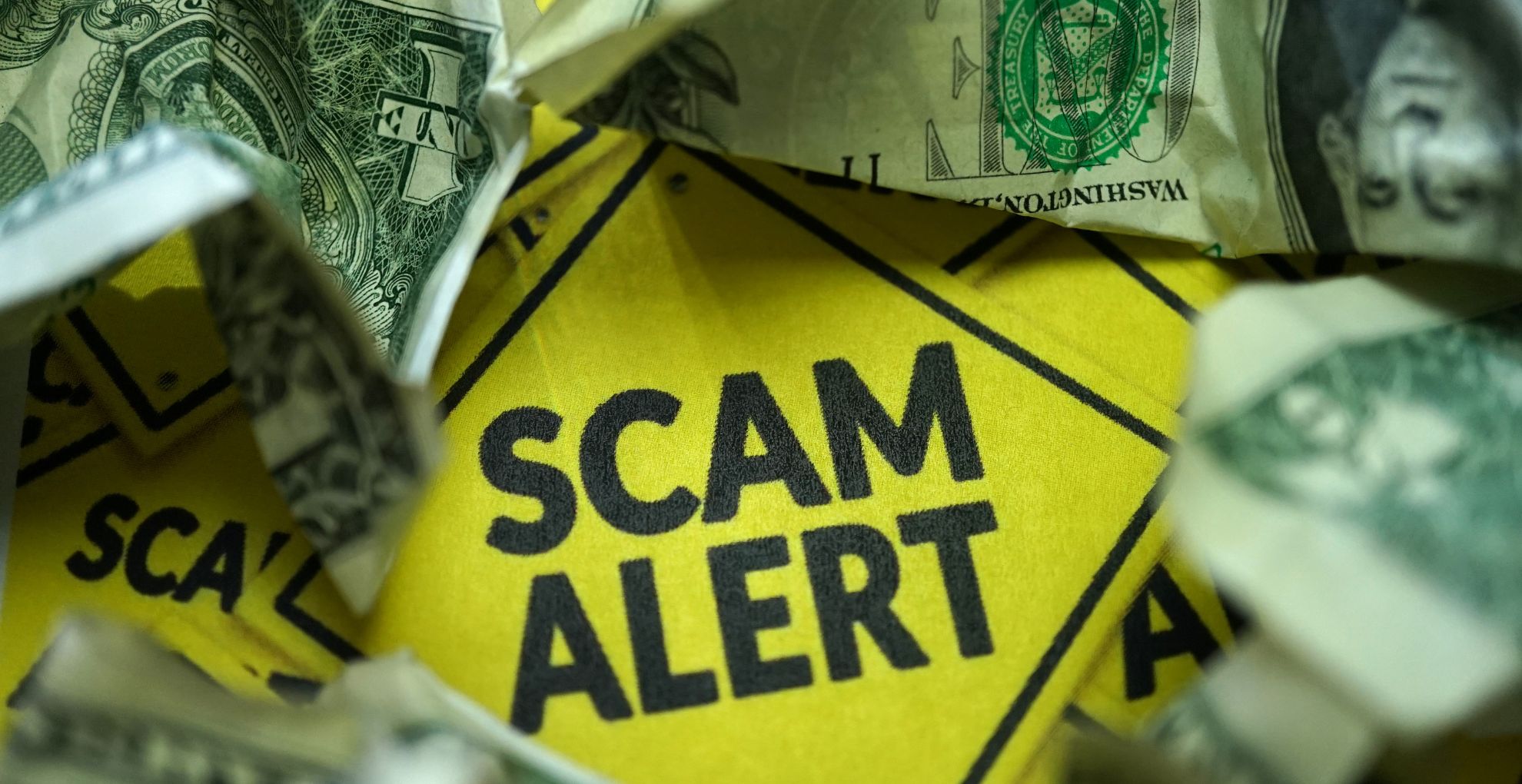College, vocational school, or certificate programs can open doors to exciting opportunities, but the rising cost of education often creates financial pressure for students and families. That stress can make the promise of “free money” incredibly appealing. Unfortunately, scammers know this too well. Every year, thousands of students fall for scholarship scams, losing not just money but also their hopes of getting legitimate help to fund their education.
This guide is here to change that. Whether you’re a student, a parent, or someone helping a loved one with the college process, you need to know how to spot scholarship scams and protect yourself from fake scholarship offers. We’ll walk you through common types of fraud, real examples, scholarship scam red flags, and practical steps for protecting against scholarship scams.
Understanding Scholarship Scams
What Is a Scholarship Scam?
A scholarship scam is any fraudulent scheme that promises access to college scholarships or financial aid in exchange for money or personal information. These scams often present themselves as too-good-to-be-true opportunities. They might guarantee you a scholarship or ask for a small “application fee” to unlock access to funds.
At first glance, they may look legitimate. They use official-looking websites, professional language, and even fake success stories. But their true aim is to take your money or steal your identity.
Why Are Students and Families Vulnerable?
Students are particularly vulnerable because they’re under immense pressure. The cost of higher education keeps rising, and not everyone qualifies for generous aid packages. Scammers prey on:
- The urgency to find financial help
- Inexperience with how scholarships and financial aid work
- A general lack of awareness about how legitimate scholarship opportunities are awarded

Common Types of Scholarship Scams
Advance-Fee Scholarship Scams
This is the most common form. You’re told you must pay an upfront fee to apply, process, or “hold” a scholarship. But once you pay, the scholarship never appears. This is a textbook example of financial aid fraud.
The Guaranteed Scholarship Scam
Scammers love the word “guaranteed.” These schemes promise a guaranteed scholarship or your money back. The catch? The refund comes with impossible conditions, or worse, the company disappears entirely.
You Won a Scholarship You Never Applied For
This scam congratulates you on winning a scholarship you never applied for. To receive the money, you must pay taxes, a “disbursement fee,” or provide banking info. Some scammers even send a check for more than the scholarship and ask you to return the difference. The check later bounces, and you’re left covering the loss.
Paid Scholarship Matching Services
While some legitimate search tools exist, others charge high fees to send you outdated or generic lists of scholarships. Worse, they may promise refunds if you don’t win a scholarship but make the terms intentionally hard to meet.
The FAFSA Filing Scam
Some companies offer to complete your Free Application for Federal Student Aid (FAFSA) for a fee. While not always outright fraud, this practice is unnecessary and risky. Even worse, some use false information to increase their aid, which could lead to fines or jail time.
How to Spot Scholarship Scams
Scholarship Scam Red Flags
While scams can be sophisticated, they usually share some telltale signs. Watch out for:
- You’re asked to pay an application fee for a scholarship
- You’re told the scholarship is “guaranteed.”
- The scholarship requires your bank account or credit card information
- The company says, “We’ll do all the work for you.”
- You didn’t apply, but they say you’re a finalist
- They say the opportunity is “exclusive” and time-sensitive
Realistic vs. Unrealistic Claims
No scholarship is ever truly guaranteed. Legitimate providers require applications, essays, or interviews. If someone says you don’t have to lift a finger or that there’s no competition, that’s your signal to walk away.
Real-Life Examples of Scholarship Scams
Case Study: The Fake Prize Check
In one commonly reported scam, students receive a check with a letter saying they’ve won a scholarship. The check is for more than the award amount, and the letter instructs them to return the difference. After they deposit the check and send the refund, the original check bounces, and their money is gone.
Case Study: The Seminar Trap
A parent once attended a free seminar promising expert advice on getting financial aid. At the event, the “experts” pushed attendees to pay $1,200 for a personalized aid plan. The plan turned out to be a printout of free online scholarship databases. There was no refund.

How to Protect Yourself from Scholarship Scams
Do Your Research
Before giving out any personal info or money, check the legitimacy of the organization. Google the company’s name along with words like “scam” or “complaint.” Look for reviews on websites like Better Business Bureau or Trustpilot. If you’re unsure, ask your school counselor or financial aid office for guidance.
Never Share Sensitive Information
Your FSA ID (used to access FAFSA) is like your signature. Don’t share it with anyone. If a company asks for your banking info or Social Security number to “hold” a scholarship, it’s a scam.
Be Wary of Seminars
Some in-person seminars or webinars may have helpful info. But others are high-pressure sales events. If they try to sell you overpriced services or demand payment on the spot, walk away.
What To Do If You’ve Been Scammed
Act Fast
If you realize you’ve been scammed:
- Contact your bank or credit card company to report unauthorized charges
- File a report with the Federal Trade Commission at ReportFraud.ftc.gov
- Inform your school’s financial aid office
Report the Scam
It may feel embarrassing, but reporting helps others. You can also contact your state’s attorney general or consumer protection agency.
Safe Ways to Search for Scholarships
Trusted Scholarship Search Tools
Use free search tools that don’t ask for payment or personal financial data. Trusted platforms include:
- Fastweb
- Cappex
- Niche
- BigFuture
Smart Search Tips
- Apply for scholarships early and often
- Focus on local and niche opportunities where the competition is lower
- Track deadlines and requirements in a spreadsheet

FAQs About Scholarship Scams
How can I tell if a scholarship offer is fake?
If the offer comes with a fee, pressure to act fast, or asks for sensitive info, it’s likely a scam.
Is it ever okay to pay for a scholarship service?
Sometimes legitimate companies charge to organize search tools, but they should never guarantee scholarships. Always research before paying.
Can someone else file my FAFSA for me?
Only you and your family should do it. Filing is free at FAFSA.gov, and no company should ask for your FSA ID.
What should I do if I gave my info to a scammer?
Change your passwords, contact your bank, and report the scam immediately to minimize damage.
Conclusion
Getting money for college shouldn’t come at the cost of being cheated. By learning how to spot scholarship scams, avoiding scholarship application fees, and knowing what legitimate scholarship opportunities look like, you can stay safe. Share this information with your peers, parents, and counselors. Informed students are empowered students.
Remember, protecting against scholarship scams isn’t just about saving money; it’s about staying focused on your education, not distractions from scammers looking to take advantage of your dreams.




